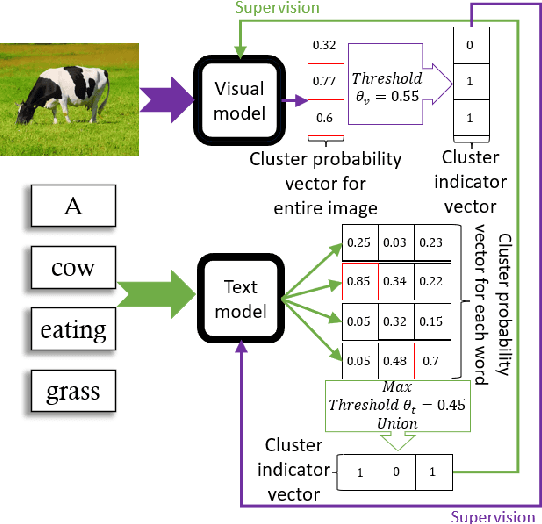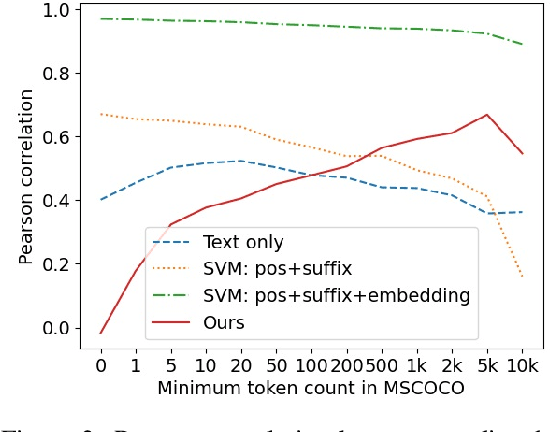A Computational Acquisition Model for Multimodal Word Categorization
Paper and Code
May 12, 2022



Recent advances in self-supervised modeling of text and images open new opportunities for computational models of child language acquisition, which is believed to rely heavily on cross-modal signals. However, prior studies have been limited by their reliance on vision models trained on large image datasets annotated with a pre-defined set of depicted object categories. This is (a) not faithful to the information children receive and (b) prohibits the evaluation of such models with respect to category learning tasks, due to the pre-imposed category structure. We address this gap, and present a cognitively-inspired, multimodal acquisition model, trained from image-caption pairs on naturalistic data using cross-modal self-supervision. We show that the model learns word categories and object recognition abilities, and presents trends reminiscent of those reported in the developmental literature. We make our code and trained models public for future reference and use.
 Add to Chrome
Add to Chrome Add to Firefox
Add to Firefox Add to Edge
Add to Edge